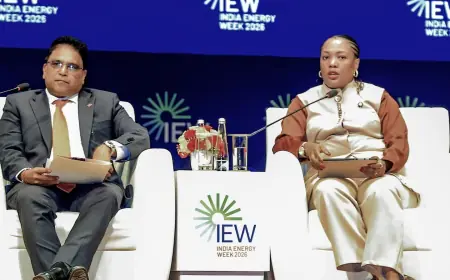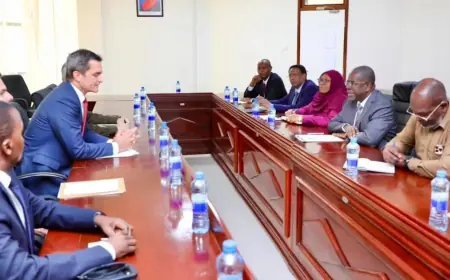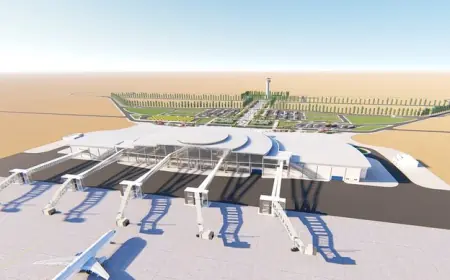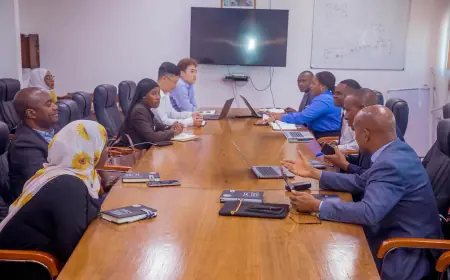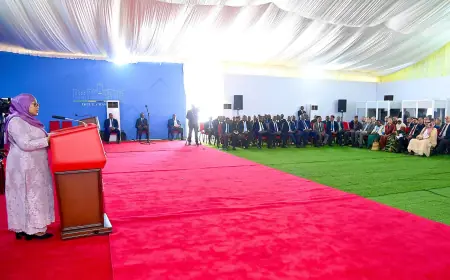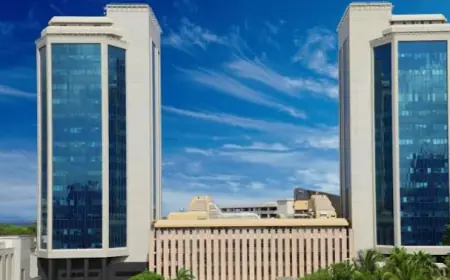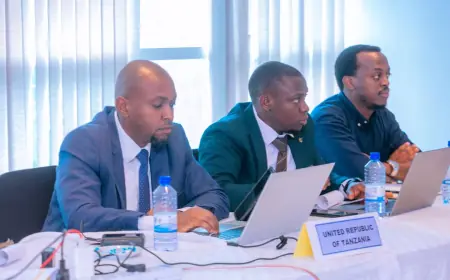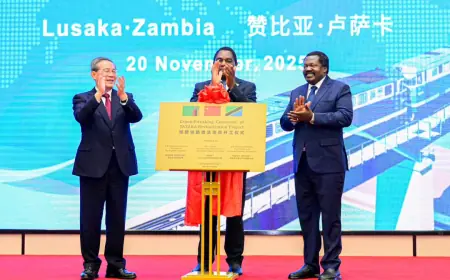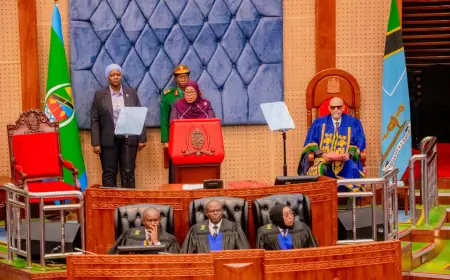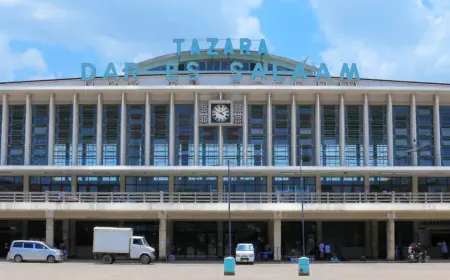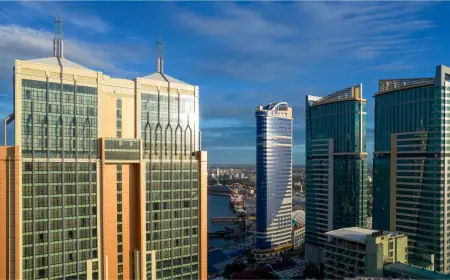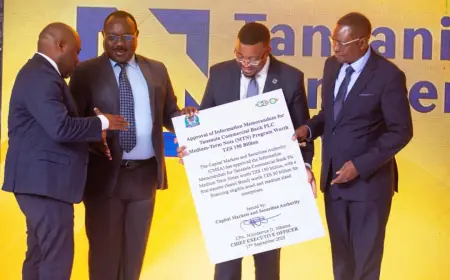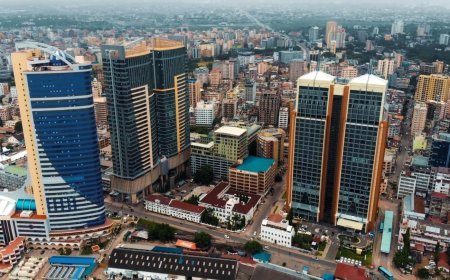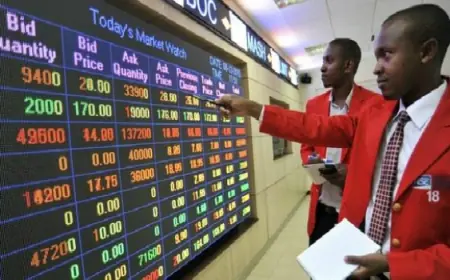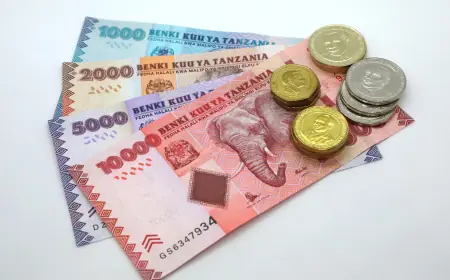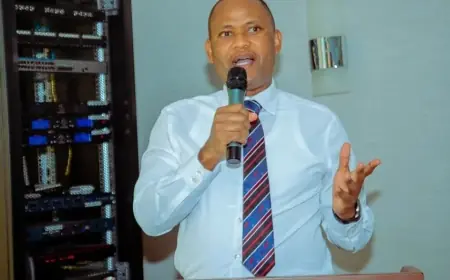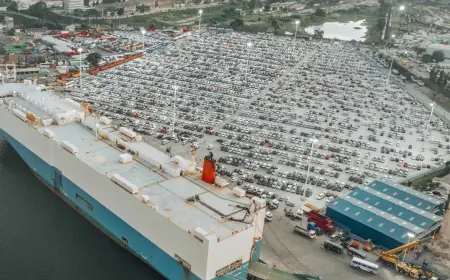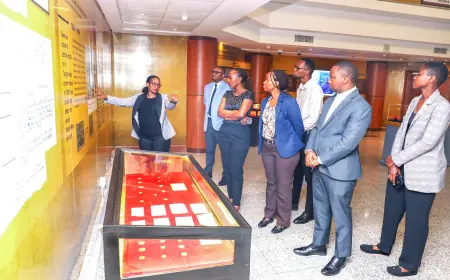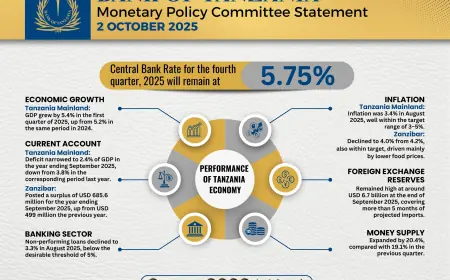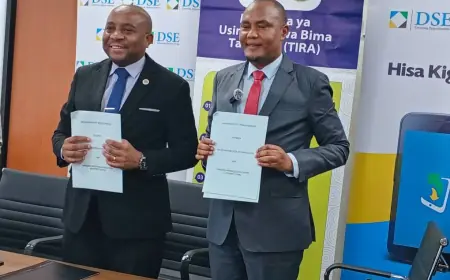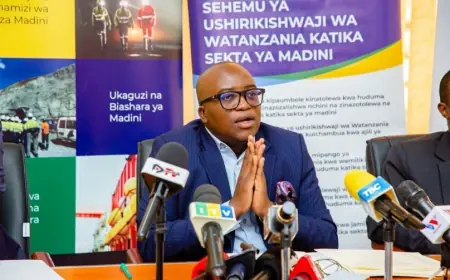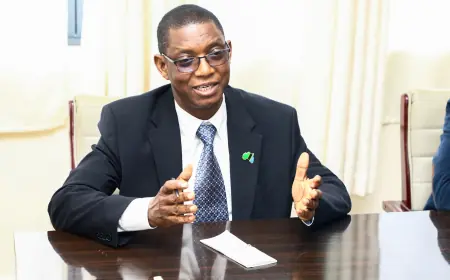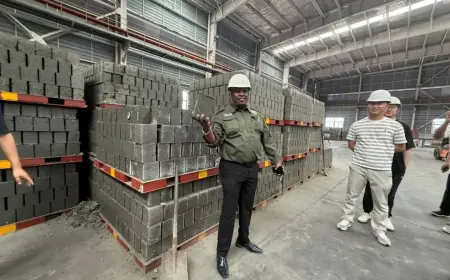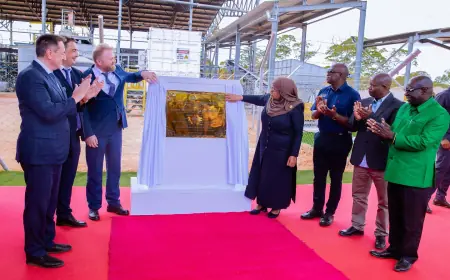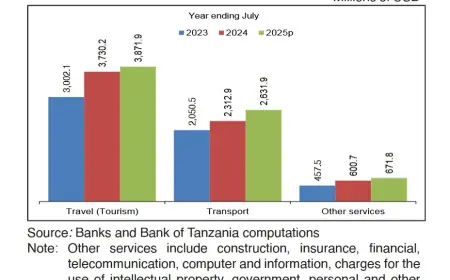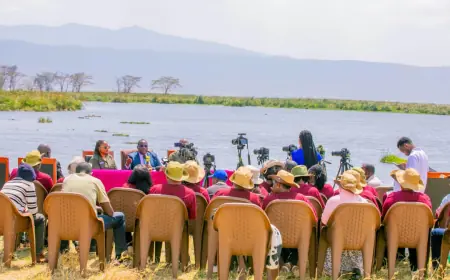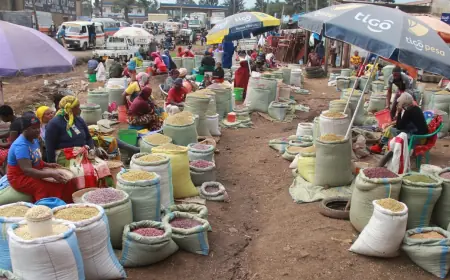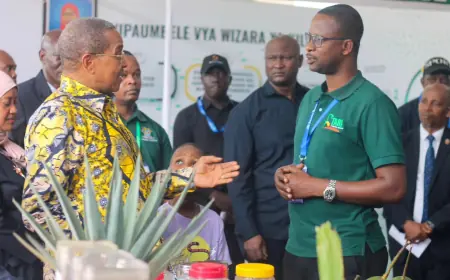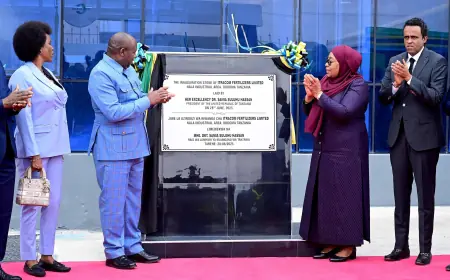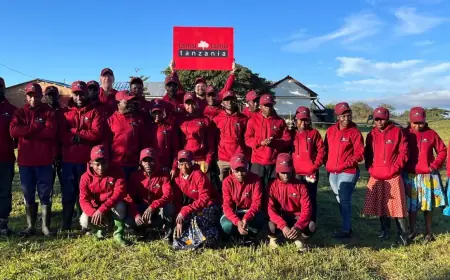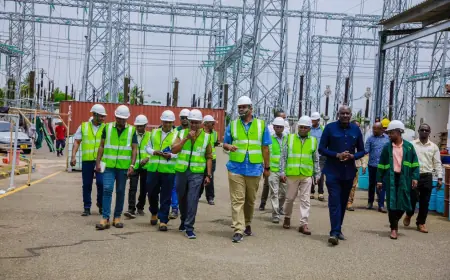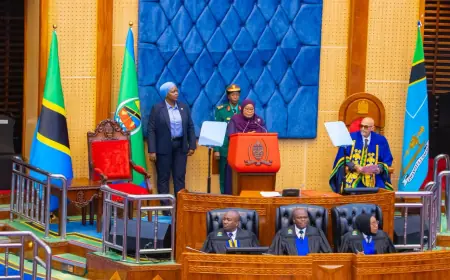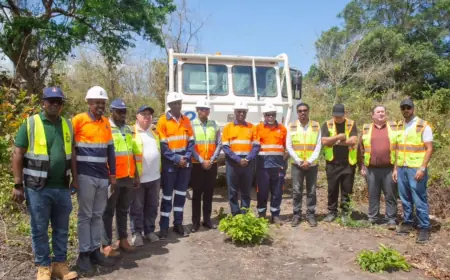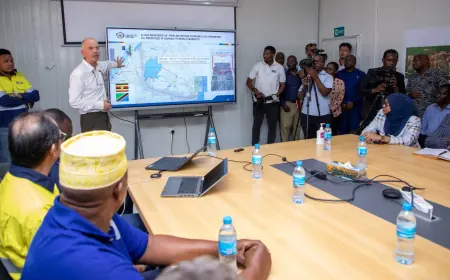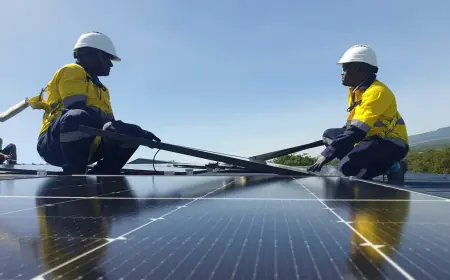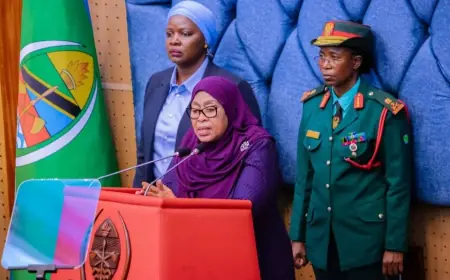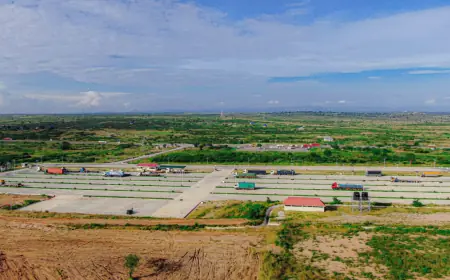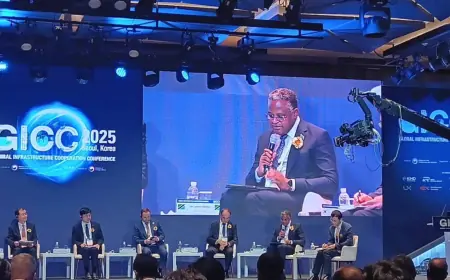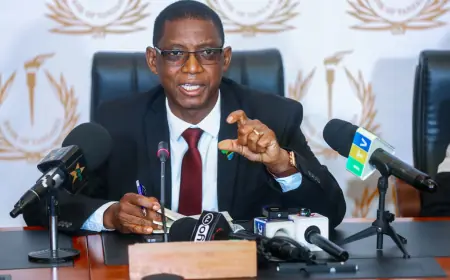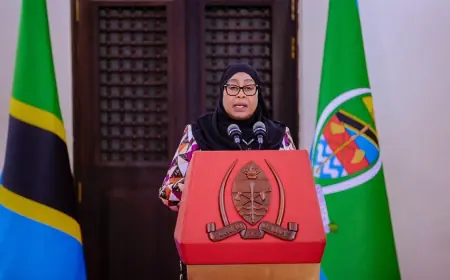Zanzibar tables Sh6.98 trillion budget for 2025/26, targets stronger domestic revenue
Tabling the revenue and expenditure estimates before the House of Representatives, the minister of State in the President’s Office (Finance and Planning), Dr Saada Mkuya Salum requested the House of Representatives to approve the revenue projections totalling Sh6,982.076 billion.
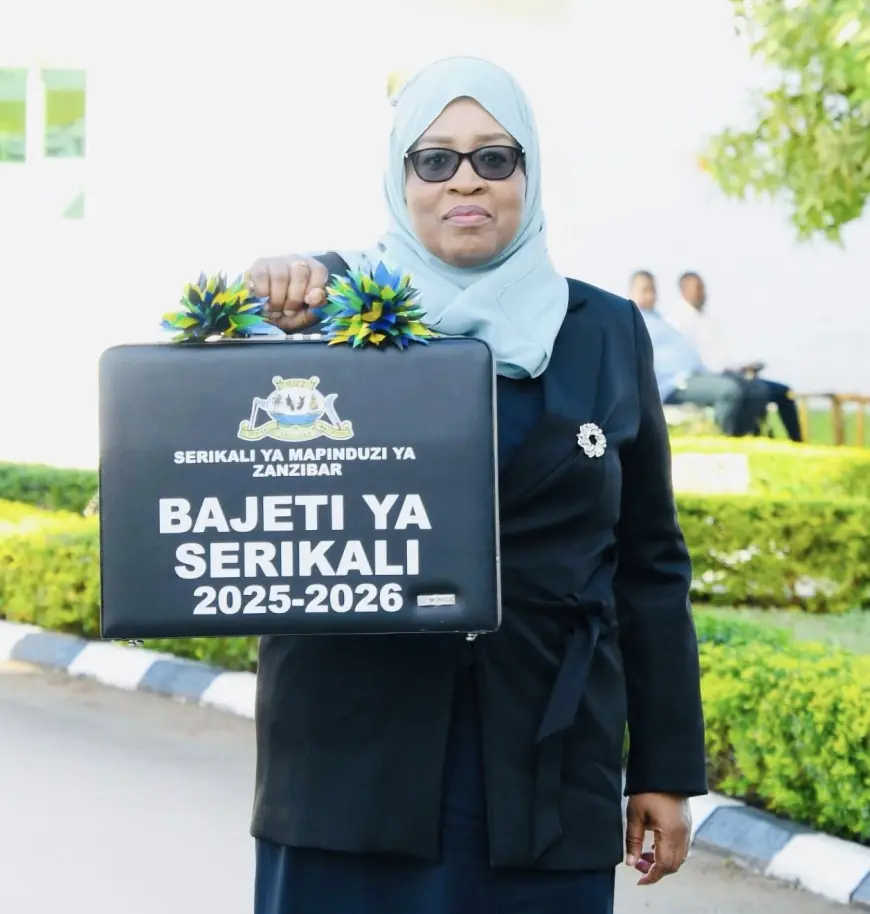
Zanzibar. The Revolutionary Government of Zanzibar has tabled a Sh6.98 trillion budget for the 2025/26 financial year, marking a significant 34.7 percent increase compared to the current year’s budget of Sh5.18 trillion.
Tabling the revenue and expenditure estimates before the House of Representatives, the minister of State in the President’s Office (Finance and Planning), Dr Saada Mkuya Salum requested the House of Represenatives to approve the revenue projections totalling Sh6,982.076 billion.
The figure includes Sh6,622.680 billion to be raised by the Central Government, Sh21.669 billion by Local Government Authorities, and Sh337.727 billion by self-financing government institutions.
The projected increase of Sh1.79 trillion reflects Zanzibar’s commitment to strengthening its fiscal position through domestic mobilisation and strategic borrowing.
Dr Mkuya explained that Sh2.398 trillion will be raised from domestic revenue, while Sh2.78 trillion will be sourced through domestic and external loans aimed at financing development projects.
Donor support is expected to contribute Sh1.44 trillion, broken down as follows: Sh962.742 billion in loans, Sh361.561 billion in grants, Sh0.539 billion through the Development Partners’ Joint Fund, and Sh120 billion as direct budget support.
The estimates also include Sh21.669 billion in revenue from local governments and Sh337.727 billion from self-financing government entities.
These will be collected through various fees and levies under the supervision of the relevant authorities.
Expenditures
On the expenditure side, the Government is seeking approval to spend the entire Sh6.98 trillion in the coming financial year.
Of that amount, Sh2.43 trillion is earmarked for recurrent expenditure, while Sh4.55 trillion will finance development projects.
The recurrent expenditure allocation comprises Sh953.733 billion for salaries, Sh590.970 billion for office operations, and Sh538.337 billion for central government services.
Additionally, Sh12.5 billion is allocated for Local Government operations using internal revenue, while self-financing institutions will spend Sh337.727 billion.
The theme of the 2025/26 budget is Boosting Domestic Revenue and Strategic Investment for Inclusive Economic Growth and Sustainable Livelihood, which aligns with the East African Community’s broader focus on economic transformation and resilience.
To actualise this vision, the Government has outlined a raft of policy reforms targeting fiscal consolidation and economic strengthening.
Special funds
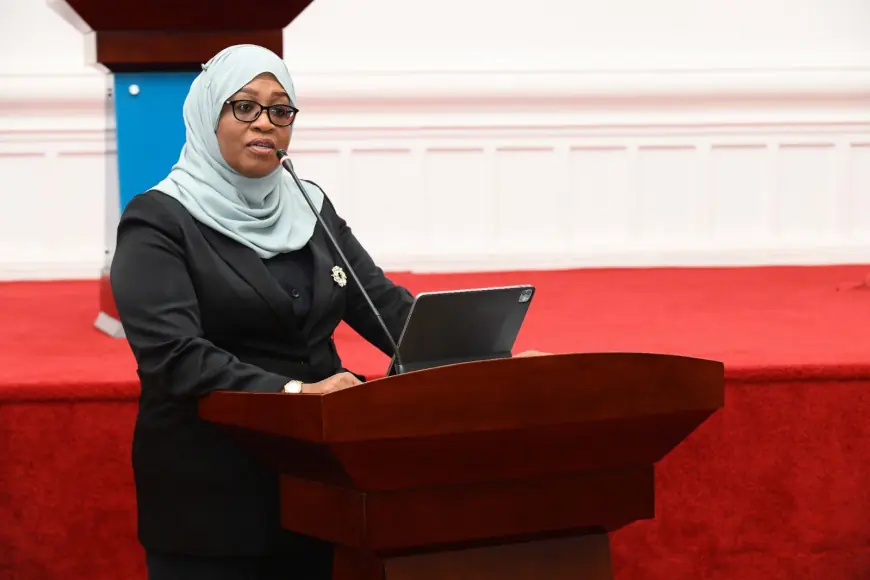
Among the initiatives are the establishment and expansion of special funds for social services.
These include a Health Sector Fund, an Education Development Fund, a Water Development Fund, and an Environmental Conservation and Management Fund.
Further reforms include restructuring revenue collection institutions to improve efficiency, with the Zanzibar Revenue Authority assuming a central role.
The government will also establish the Zanzibar Halal Bureau to certify goods and services as halal, targeting tourism and trade from the Middle East.
Tax and exemption laws will be reviewed and amended to strengthen public revenue management.
Emphasis will be placed on the use of electronic systems across ministries and institutions, complemented by policies that promote cashless payments to improve transparency and convenience for citizens and businesses.
The government will also oversee preparations for the next general election, initiate the operationalisation of the Zanzibar Securities Exchange, and intensify investment in agriculture, especially through greenhouse projects and enhanced clove production.
A budget of Sh100 billion has been set aside for emergency response, including natural disasters.
Other targeted allocations include Sh373.44 million for subsidies to support the operations of elders’ councils and Sh2.554 billion for special allowances for headteachers and their assistants. Secretaries to Regional Commissioners will also receive special allowances under this budget.
The budget also includes Sh3.2 billion to cover pay increases for councillors and masheha (local government leaders).
Reduced donor dependency
One of the notable shifts in the 2025/26 budget is a reduction in donor dependency.
The share of donor funding has dropped from 6.3 percent last year to 4.9 percent this year, a result of intensified efforts to boost domestic resource mobilisation.
“This decline in dependency demonstrates our Government’s commitment to self-reliance. Our reliance on development partners now stands at Sh345.498 billion against the total budget of Sh6.98 trillion,” the Dr Mkuya told the House.
In advancing gender equality and social inclusion, the Government has identified seven thematic areas, which are:
* Education, skills development and ICT,
* Productive economic participation,
* Leadership and democratic engagement,
* Access to social services,
* Gender-based violence and good governance,
* Gender equity in environmental management,
* Gender equality in macroeconomic policy and public finance management.
To promote digital transformation, the Government will invest Sh148.914 billion, equivalent to 4.5 percent of the total budget.
This funding will support various programmes, including:
* Sh70.051 billion for digital economic infrastructure,
* Sh35.560 billion to construct industrial and commercial development zones,
* Sh10.804 billion for trade and exhibition centres,
* Sh12.5 billion for food systems resilience,
* Sh20 billion for warehouse rehabilitation.
This investment aligns with Zanzibar’s vision of becoming a digital economy.
“We are committed to improving communication systems and infrastructure in industrial zones, commercial hubs, and special economic areas to attract both local and foreign investors,” Dr Mkuya noted.
Overall, the 2025/26 budget underscores a deliberate strategy by Zanzibar’s Government to enhance revenue collection, reduce aid dependency, promote inclusive economic growth, and bolster service delivery.
The House is expected to deliberate on the proposals and approve the estimates in the coming days.
What's Your Reaction?
 Like
0
Like
0
 Dislike
0
Dislike
0
 Love
0
Love
0
 Funny
0
Funny
0
 Angry
0
Angry
0
 Sad
0
Sad
0
 Wow
0
Wow
0
